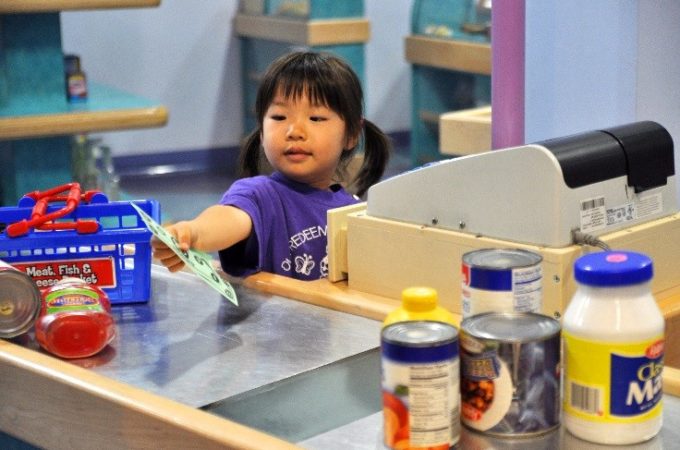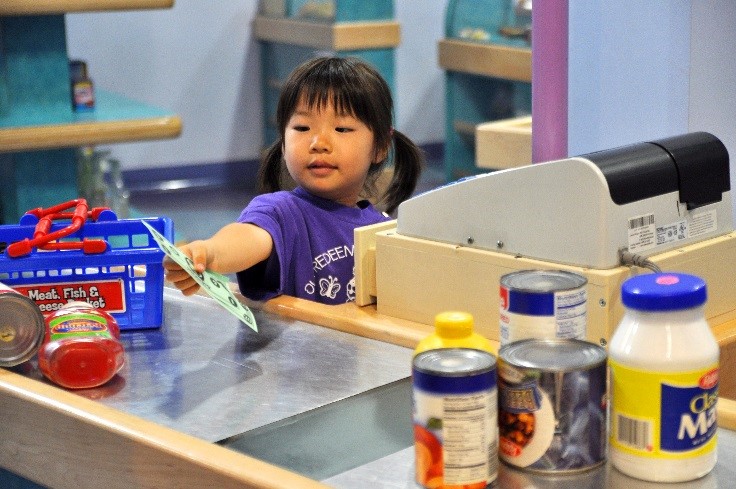We have been hearing a lot of buzz about play-based learning in Ontario and, personally, I am quite thrilled about this. Current research has found play to be an essential vehicle for the development of children’s social, emotional, cognitive, physical and communicative development.
It’s all well and good that there is a great deal of research to support this, but I think it’s also important to reflect on what play means to you. How has play influenced your life? Taking the time to think about this may even enrich how you approach play and interactions with the children in your life.
For me, play has always been such an integral part of my life. I have distinct memories playing as a young child. Imaginative play was what I loved best. I remember sitting at the end of my gravel driveway making ‘soup’ by throwing stones and dirt in a puddle and stirring it up with twigs. I was so proud to show my mom, describe to her what I was doing and talk her through all of the steps in my ‘recipe’. I also remember playing ‘teacher’ with neighbourhood friends, family members and just about anybody that would humour me. I would bring ‘Mister Muggs’ books, sit my ‘student’ down and teach her how to read. And sometimes, the roles would switch. My friends and family who played with me continued to fuel my creativity and development.
Now, as a therapist supporting the communication development of young children and their families, play is an essential part of my everyday work. I understand now, that the play that I chose as a child, had so many benefits to me as a young learner. Without knowing it, I was exploring new ideas and emotions, thinking flexibly, developing physical skills, and working on language skills such as oral narratives and literacy skills. Hunched over the mud puddle, I had to plan what to put into my ‘soup’ and sequence a series of steps such as throwing in stones, grass, leaves and stirring the ‘soup’ occasionally. I had to be flexible. When I ran out of leaves, what else could I put in? When I explained to my mom what I did, I had to use more complex, narrative language to explain the steps in my process and I felt a lot of pride in my ‘work’!
I believe that I was learning much more from these rich play experiences than by doing my grade two worksheets. Sure, I was learning to master very specific skills through my school worksheets, such as rules of spelling and reading. For example, through practice and repetition, I learned to choose the correct homophone to fill in the blank of a sentence. However, it was through open-ended play and rich engagement with others that I could really work on multiple skills and areas of development at once. It became clear that there were also long-term benefits from engaging this type of play, like understanding myself and my dreams better. I developed aspirations that stuck with me, such as knowing that I wanted to teach others in some capacity.
I use this understanding when working with young children, following their lead in play and aiming to support multiple areas of development, all while having fun! To me play means connecting, building relationships, learning and growing. This belief certainly colours my work with young children.
Reflecting on play and what it means to you can be a meaningful exercise. What does play mean to you? What do you enjoy playing with the children in your life? What do you think they are learning and gaining in their play?
–
Fay
Fay McGill has been a Speech-Language Pathologist in the Greater Toronto Area for over a decade. She loves playing, learning and supporting young children and their families.




One comment
Nadia Noble
Love love love play! Well written Fay!